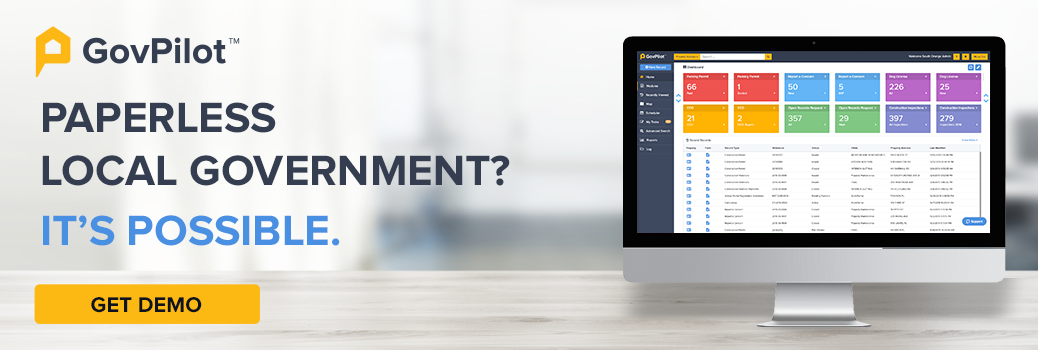Local representatives and politicians universally regard democracy as a system that everyone would obviously be thrilled to participate in, finding it hard to fathom why anyone would choose not to engage.
With time it is becoming more painstakingly obvious that this is not the case, rather, less than 3/4ths of the eligible population turnout for major elections and even less for local elections!
As an example, the 2020 presidential election had a record setting turnout of 66% of voting-eligible citizens participating, leaving a lot of room for improvement in citizen engagement, especially at the local level.
Ensuring that all voices are heard in local governance is paramount. When constituents do not participate, officials lack the comprehensive insight needed to make informed decisions that truly reflect the needs and desires of the community. This lack of engagement can lead to policies that do not adequately serve all segments of the population, perpetuating inequities and leaving marginalized groups without representation.
While the task may seem daunting and arduous, it is non-negotiable because without considering everyone's voices, the fundamental principles of democracy are compromised. Follow along as this guide navigates you through the necessary steps to inspire and engage constituents in local elections and politics.
What This Guide Will Cover
- Local Democracy and Its Importance
- Reminders To Ensure Constituent Engagement
- Steps To Inspiring Constituents To Participate In Local Democracy
- What Active Constituent Participation In Democracy Accomplishes
Why Is Local Democracy Important?
The idea of local democracy, when practiced correctly, grants citizens the opportunity to be heard and see changes in their community perfectly tailored to their needs. Constituents play a direct role in influencing decisions that impact their daily lives, fostering a sense of community and accountability.
Local democracy ensures that local needs and priorities are addressed swiftly and effectively, as residents often have a deeper understanding of their community's demands than distant representatives. An empowered community, where constituents feel heard and understood, strengthens the representation provided by local officials, ultimately leading to a more vibrant and responsive community.
Best Practices To Ensure Active Constituent Engagement
Here are the best practices and vital elements to consider when engaging constituents to participate in local democracy.
-
Make Democracy Accessible
It is the representatives’ responsibility to recognize the different needs of their community members and make the necessary accommodations to account for those who are differently-abled. Failing to acknowledge those who may have difficulty getting transportation to voting sites, are unable to read, or may not speak English is a type of ignorance that blatantly and intentionally excludes a huge population from expressing their needs and concerns.
Explore Disability Inclusion Plans to learn how to implement more inclusive practices into your community here!
-
Use The Resources You Have Available
The Digital Age has revolutionized the way that people engage in day to day activities. Moreover, previous inconveniences have been modified to be easier than ever, and more importantly, accessible for everyone. Utilizing these tools is a necessity when handling outdated practices that systematically exclude certain groups. We must recognize the resources that are readily available and work to identify where these can be implemented in a way that serves the population, maximizing convenience.
Unsure where to start? GovPilot can help, read on about digital transformation here!
-
Constituent Engagement Software Can Help
Constituent engagement software enhances active participation in local democracy by providing an accessible platform for residents to voice their concerns, share feedback, and stay informed about local issues. It facilitates real-time communication between constituents and officials, ensuring that community input is considered in decision-making processes.
This software also streamlines the organization of town halls, surveys, and other participatory events, making it easier for citizens to engage with their local government. By fostering transparency and responsiveness, constituent engagement software helps build trust and collaboration between the community and its representatives, leading to more effective and inclusive governance.
Try GovPilot’s Constituent Engagement Software!
Step By Step Guide To Inspiring Constituents To Participate In Local Democracy
There are many ways to improve constituent engagement in your municipality. Follow these steps when developing local strategies to inspire constituents to use their voice in local democracy!
1. Bring Democracy To Their Attention
Bringing democracy to citizens' attention through online posts, news coverage, and flyers can significantly inspire participation by raising awareness about the importance of their involvement. These methods can highlight how individual voices and actions directly impact community decisions, motivating citizens to engage. By providing clear information on how and where to participate, these efforts can make the democratic process more accessible and less intimidating. Additionally, showcasing stories of successful citizen involvement can inspire others to take an active role, fostering a more engaged and empowered community.
Read our Guide To Building A Government Marketing Strategy To Engage Constituents here.
2. Host Events
Hosting events can motivate constituents to get involved in their local democracy by creating opportunities for direct interaction with local officials and fellow community members. These events can demystify the political process, making it more approachable and engaging for participants. By providing a platform for open dialogue, constituents can voice their concerns, share ideas, and see firsthand how their input influences local decisions. This personal connection and immediate feedback can inspire greater involvement and commitment to community issues.
Learn about Managing Local Holiday Events In Your Community and Your Planning Guide For Local Public Summer Events here!
3. Host Meetings
Hosting meetings where all constituents are invited promotes participation by giving everyone the chance to voice their opinions and contribute to community discussions. This inclusive approach creates a sense of belonging and ownership over local decisions, encouraging more people to get involved. Additionally, these meetings can build trust and transparency between constituents and local officials, further motivating engagement.
4. Encourage E-Democracy
E-democracy could transform the democratic process by making it more accessible, convenient, and efficient for constituents to participate. Through online platforms, citizens can easily engage in discussions, vote on local issues, and provide feedback from the comfort of their homes.
This increased accessibility removes barriers such as time and location constraints, encouraging more people to get involved. E-democracy also promotes transparency by providing real-time updates and information, helping constituents stay informed and actively participate. Ultimately, this digital approach can lead to higher levels of civic engagement and a more responsive and inclusive democratic process.
Read about How to Bring Digital Democracy to Government Agencies here.
5. Incentivize Participation
Incentivizing participation through measures such as offering rewards or recognition can encourage greater voter turnout by appealing to citizens' self-interest and sense of accomplishment. By providing tangible benefits or acknowledgments for engaging in the democratic process, individuals may feel more motivated to cast their votes or participate in civic activities. These incentives can help overcome apathy or indifference, ultimately leading to a more engaged and active electorate.
Read about Addressing Challenges Governments Face Moving to an Online Capacity here!
6. Prioritize Communication and Transparency In Government
Prioritizing communication and transparency in government is essential for building trust and credibility with constituents. When government officials openly share information, engage in honest dialogue, and actively listen to citizen concerns, it fosters a sense of accountability and responsiveness.
This transparency not only demystifies the democratic process but also empowers constituents to feel more invested in decision-making. As a result, by enhancing understanding and trust, prioritizing communication and transparency can transform how constituents perceive the democratic process, leading to increased participation and a stronger bond between citizens and their government.
Read our guide on Interdepartmental Government Communication Strategy here.
What Active Constituent Participation In Democracy Accomplishes
-
More Tailored Policies For Your Citizens
With the specific needs of the community being advocated for and addressed directly, policies can then be catered to those needs effectively. It is a recurring pattern that the community members who are lacking representation in the democratic process have the greatest difficulty expressing those concerns. As representatives begin doing their part in making the voting experience and democratic process easier to understand and more accessible, voter turnout will increase, leading to policies better reflecting the needs of the community.
-
Enhanced Civic Engagement
Active participation in democracy can lead to enhanced civic engagement by empowering individuals to take ownership of their communities and contribute to positive change. When citizens are actively involved in political processes, such as voting, volunteering, or advocating for issues they care about, they become more connected to their society and fellow citizens. This increased engagement not only strengthens democracy but also fosters a sense of responsibility and shared purpose among members of the community.
Consider using GovPilot’s Volunteer Application!
-
More Accurate Representation
Constituents engaging proactively can lead to a more accurate representation of the community, its citizens, and their needs by ensuring that diverse perspectives are considered in decision-making processes. When residents actively interact with their local government officials gain a deeper understanding of the community's priorities, challenges, and aspirations. This results in policies and initiatives that better reflect the interests and concerns of the entire population, ultimately fostering a more inclusive and responsive governance system.
Learn about Streamlining Constituent Services 2023: Examples & Helpful Tips here!
-
Strengthened Community Bonds
Citizens' involvement in the democratic process can enhance community bonds by nurturing a sense of collective ownership and shared responsibility for the community's welfare. Through active participation in decision-making and civic activities, residents forge stronger connections with one another, building trust and mutual respect. Additionally, collaborating towards common objectives and addressing shared challenges promotes unity and cooperation, further reinforcing the bonds within the community.
Learn about Crafting a Vision for Mental Health Wellness in Your Community here.
Inspire Your Constituents To Participate In Democracy Now
Local government officials are called upon to address this demand from their communities who may be unsure how to involve themselves in the democratic process.
To support this effort, they are encouraged to schedule a consultation with GovPilot. GovPilot offers expertise in digital governance solutions that can streamline communication, increase transparency, and enhance civic engagement. By engaging GovPilot's services, officials and government employees can effectively address the needs of their communities while fostering a more inclusive and responsive democratic process.
Improved Local Democracy FAQs
Why is local democracy so important?
Local democracy is crucial because it allows citizens to have a direct say in decisions that affect their daily lives, promoting accountability, responsiveness, and community cohesion within their immediate surroundings.
Who should participate in local decision making?
All members of the local community should participate in local decision making, as their diverse perspectives and experiences contribute to more comprehensive and representative outcomes that better serve the community as a whole.
Read on:
- Local Government Employee Appreciation Strategy: Employee Retention Tips What is Azure for Government? Everything to Know
- A Guide To SOC-2 Audits: Considerations for Local Governments from GovPilot
- 7 Government Cybersecurity Best Practices 2023: Keep Data Secure & Prevent Ransomware Attacks
- Government Cloud 2023: How Local Governments Can & Should Use the Cloud
- From Digital Animal Licenses to Pop-Up Rabies Clinics: How Your City Can Become More Pet-Friendly
- The Key To Managing Annual Licensing Renewals on Your Government Website
- The Benefits of Providing Employment and Skill Workshops For Citizens
- Public Sector Robotic Process Automation: How RPA Can Transform Local Governments
- Government Data Analytics: Tips & Considerations for Municipal Data






